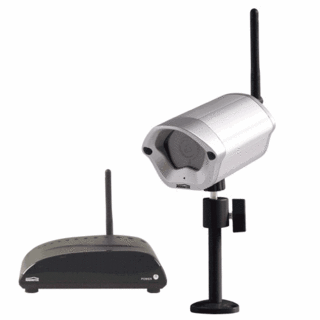The FBI's controversial e-mail surveillance tool, known as Carnivore, can retrieve all communications that go through an Internet service
Published:
19 November 2000 y., Sunday
The FBI's controversial e-mail surveillance tool, known as Carnivore, can retrieve all communications that go through an Internet service — far more than FBI officials have said it does — a recent test of its potential sweep found, according to bureau documents.
An FBI official involved with the test stressed Friday that although Carnivore has the ability to grab a large quantity of e-mails and Web communications, current law and specific court orders restrict its use.
The Carnivore system, installed by the FBI on the network of Internet service providers, has software that scans Internet traffic as it moves through that provider's network. The FBI says it configures the software to capture e-mail to or from someone under investigation and that court orders limit which e-mails agents can see.
Nevertheless, based on the new documents, privacy experts said they are worried about the breadth of Carnivore's capability and questioned why the FBI even conducted such a test in June if it intends to use the tool only for narrow purposes.
"That really contradicts the explanation that the FBI has provided as to the purpose of the system and how it works," said David Sobel, general counsel for the Washington-based Electronic Privacy Information Center.
In the lab report, FBI officials said Carnivore "could reliably capture and archive all unfiltered traffic to the internal hard drive" and could save the information on removable high-capacity disks as well. FBI officials say Carnivore has been used in about 25 cases, most involving national security.
Šaltinis:
cbsnews.com
Copying, publishing, announcing any information from the News.lt portal without written permission of News.lt editorial office is prohibited.
The most popular articles
Software company announced new structure_ of it_s business.
more »
 Just a few weeks ago, the world's tiniest video camera was as small as a grain of rice. Today, the world's NanoEst camera is even smaller.
more »
Just a few weeks ago, the world's tiniest video camera was as small as a grain of rice. Today, the world's NanoEst camera is even smaller.
more »
 During the experiment two research groups managed to overcome a symbolic 100 TB/s optical fiber data transmission speed limit.
more »
During the experiment two research groups managed to overcome a symbolic 100 TB/s optical fiber data transmission speed limit.
more »
 Apple’s long–awaited online storage service for iTunes could be named iCloud, if only rumours are to be believed.
more »
Apple’s long–awaited online storage service for iTunes could be named iCloud, if only rumours are to be believed.
more »
 The founders of video-sharing site YouTube have bought bookmarking service Delicious from Yahoo.
more »
The founders of video-sharing site YouTube have bought bookmarking service Delicious from Yahoo.
more »
 The successful raid by hackers on Sony’s PlayStation Network is already being ranked among the biggest data thefts of all time.
more »
The successful raid by hackers on Sony’s PlayStation Network is already being ranked among the biggest data thefts of all time.
more »
 Apple has denied that its iPhones and 3G iPads have been secretly recording their owners' movements.
more »
Apple has denied that its iPhones and 3G iPads have been secretly recording their owners' movements.
more »
 Customers who have waited nearly 10 months for the white version of the iPhone 4 won’t have to wait much longer. The Great White iPhone 4 is finally here.
more »
Customers who have waited nearly 10 months for the white version of the iPhone 4 won’t have to wait much longer. The Great White iPhone 4 is finally here.
more »
 Researchers at Georgia Tech University are teaching a robot the basics of dialogue. Named "Simon", the robot has already been taught how to attract a person's attention but eventually, it's hoped he'll be able to interact and converse with humans in daily life.
more »
Researchers at Georgia Tech University are teaching a robot the basics of dialogue. Named "Simon", the robot has already been taught how to attract a person's attention but eventually, it's hoped he'll be able to interact and converse with humans in daily life.
more »
 3D? Terribly lame when it's tossed into devices as a bullet point feature. Trimensional for iPhone takes a picture of your face and maps your mug in a 3D model.
more »
3D? Terribly lame when it's tossed into devices as a bullet point feature. Trimensional for iPhone takes a picture of your face and maps your mug in a 3D model.
more »
 The European Union is to investigate whether internet service providers (ISPs) are providing fair access to online services.
more »
The European Union is to investigate whether internet service providers (ISPs) are providing fair access to online services.
more »